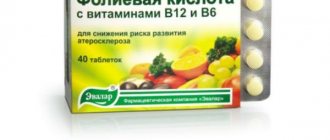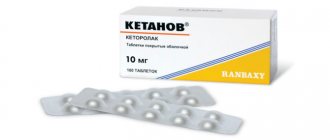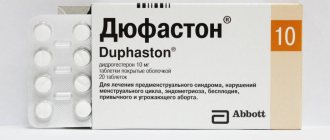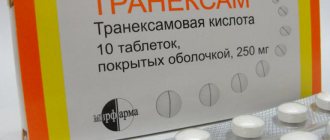Folic acid (vitamin B9) is indispensable in gynecology. A woman especially needs this substance during pregnancy; folates reduce the risk of miscarriage and developmental defects, and help the child grow normally. Preparations with this component make it easier to endure the unpleasant symptoms of menopause, put hormonal levels in order and quickly cope with gynecological diseases. When menstruation is delayed, folic acid normalizes the cycle and makes menstruation itself painless. Let's figure out why women need vitamin B9 and how to take dietary supplements so as not to cause harm.
How does folic acid affect your cycle?
Regular periods that come day after day without delay or failure are the dream of every girl. Those who are sexually active are familiar with the exciting anticipation of menstruation, which has decided to be a little late. Failures also raise questions among those girls who definitely could not get pregnant in the previous month. The issue usually turns out to be either a conception that has occurred, or hormonal changes or problems with the functioning of the female reproductive system.
Folate supplements are an excellent option for those who want to get their cycle in order without using the “heavy artillery” of more serious drugs. You can also take folic acid during menstruation; doctors usually prescribe folacin supplements for:
- cycle irregularities (arrive early or are delayed for more than 5 days);
- excessive discharge (more than 2 pads or tampons within 1-2 hours);
- severe deterioration in health (intense pain in the abdomen or lower back, dizziness, fainting, nausea or vomiting).
Solgar, Folic Acid, 800 mcg, 250 Tablets
868 ₽
Buy at a discount
Folacin also helps well during the premenopausal period, when menstruation becomes irregular. Folic acid helps adapt to hormonal changes during the initial phases of menopause, so unpleasant symptoms are not so pronounced.
Often problems with menstruation arise due to vitamin deficiency. If the body does not have enough vitamins, especially E or B9, you should not expect regular menstruation without delays. Taking folate supplements before the expected start date of your cycle will cause the endometrium to shed, allowing bleeding to begin on time. At the same time, folacin controls the production of red blood cells. This means that even with very heavy menstruation, the body will not suffer from anemia.
You can start drinking folate on any day of the cycle; it is advisable that by the end of the cycle the vitamin has already accumulated in the body. This will help you endure menstruation easier and “call” it on time.
It is necessary to take folic acid supplements in courses. A gynecologist will help you choose the right drug and dosage. You should not prescribe high doses of folates on your own; this can lead to the opposite result.
If, during an examination, a gynecologist discovers an infection or disease of the reproductive system, dietary supplements with folic acid will not correct the situation. In this case, they can only be taken as an addition to the main treatment.
What is vitamin therapy by day of the cycle?
To maintain normal functioning of the body, a woman’s diet must be balanced and enriched with vitamins and microelements.
The minimum daily dose of tocopherol for women is 10 mg. To prevent hypovitaminosis, it is recommended to take 8 mg per day.
You can get this vitamin using medications in the form of oil capsules or solutions for oral use and intramuscular injections. Pharmaceutical drugs have different dosages: 100, 200, 400 mg.
It is necessary to include foods containing large amounts of tocopherol in your diet:
- Wheat: germ oil and sprouted grains.
- Nuts: almonds, walnuts, hazelnuts.
- Sunflower: seeds and oil.
The above products are best consumed raw without any heat treatment. You can use them as additives to vegetable salads.
Vitamin E contains smaller quantities:
- vegetable oils (linseed, olive, sesame and corn);
- fruits;
- bran;
- vegetables (broccoli, spinach, carrots, onions, tomatoes);
- legumes (soybeans and beans);
- cereals (oatmeal and buckwheat);
- dairy products;
- liver.
In the second phase of the cycle, to induce menstruation, you should increase the consumption of foods rich in vitamin C (raspberries, citrus fruits, currants, cabbage, etc.).
The effectiveness of taking tocopherol to normalize the menstrual cycle has not been proven, so doctors have differing opinions about the advisability of its use in cases of delay. But in practice, vitamin E is often prescribed as part of complex therapy. Vitamin E, used by women to induce periods, has mixed reviews.
Most women notice that while taking tocopherol, the menstrual cycle is normalized without the use of hormonal drugs, and their overall well-being and appearance improve. With the simultaneous use of vitamin C, the duration and amount of bloody menstrual flow decreases.
In some cases, the opposite effect is observed: menstruation is delayed, the nature of the discharge changes (becomes too scanty or heavy), pain appears in the lower abdomen.
The reasons for such discrepancies have not been established, since it is impossible to take into account all the factors that act on a woman’s body during the month and cause a delay. However, doctors claim that if the dosages and treatment regimen are followed, vitamins help normalize the functioning of all body systems and do not cause harm.
Vitamin E is a unique compound that supports the normal functioning of the entire body. Tocopherol is especially important for women; it not only slows down the aging process, but also helps restore reproductive function, including the normalization of the menstrual cycle. To call for menstruation, a certain scheme is used, which is established by a specialist, based on laboratory data. Exceeding the dosage can cause hormonal imbalances, bleeding and other complications.
The menstrual cycle is a reflection of the state of a woman’s reproductive system, and if it goes wrong, especially in adolescence, this can lead to many problems - amenorrhea, dysminorrhea, delayed sexual development and, subsequently, difficulties in conceiving a child. A qualified doctor always gives the right recommendations and chooses the optimal treatment regimen, which we will talk about.
Serious pathologies often require hormonal therapy, but if the problem can be solved more simply, gynecologists may prescribe vitamin therapy. It would seem, how can these simple compounds affect the reproductive system and, in addition, eliminate problems? It turns out they can.
Some of the vitamins have a pronounced gonadotropic and estrogen-like effect, since they are used to normalize the menstrual cycle and ovulation in adolescence and in women who have undergone ovarian surgery.
You need to take such medications on a strictly defined schedule because the effectiveness of each depends on the day of consumption. The list of prescribed medications is often short and consists of:
- folic acid;
- vitamins B1, B6, E;
- ascorbic acid.
Folic acid during pregnancy
If non-pregnant women are not always prescribed folacin supplements, then during pregnancy, folate-based medications are a real must-have. Taking them is especially important in the first trimesters. During this period, the central nervous system is formed; a strong deficiency is guaranteed to lead to developmental pathologies.
Gynecologists prescribe dietary supplements with folic acid to reduce the risk of the following serious problems:
- cerebral edema in a child;
- cerebral hernia;
- hydrocephalus;
- spinal cord pathologies.
Folacin makes the growing fetus more resistant to external factors, for example, low-quality products or poor ecology.
Taking folate helps not only to form the neural tube of the fetus, but also to facilitate pregnancy. The substance helps:
- reduce symptoms of toxicosis;
- improve general well-being;
- restore good appetite;
- normalize sleep;
- calm your nerves.
Gynecologists recommend starting to take medications with folates even before conception. It is ideal if a woman has time to drink the supplement within several months.
However, not all pregnancies are planned. It also happens that a couple wants a child, but does not take vitamin supplements or other medications, simply hoping for good fertility. In this case, you should definitely take folacin during the first trimester. A gynecologist will help you choose the drug and dosage.
Now Foods, Methyl Folate, 1,000 mcg, 90 Tablets
926 ₽
Buy at a discount
Vitamins when planning pregnancy
Every couple sooner or later decides to have a child. The process of preparing for this significant event takes quite a lot of time, but the health of the future heir is more important. Vitamins play an important role for women when planning pregnancy. Because the absence of any of them can cause certain consequences in the development of the fetus.
Young couples often ask how long should they take vitamins when planning a pregnancy? Often three or four months is enough to accumulate the correct amount of these essential substances in the female body. But there are conditions under which vitamin therapy should be extended to six months:
- the presence of any chronic diseases;
- previous pregnancy accompanied by complications;
- presence of heavy loads;
- There are factors at work that are harmful to health.
Each vitamin has a specific function. But the following vitamins are especially important for expectant mothers.
Vitamin B9
Almost every woman who is preparing to become a mother should take B9, known as folic acid. His role:
- protect you from miscarriage;
- help form the placenta;
- reduce the likelihood of a defect in the structure of the neural tube of the embryo;
- participates in the formation of red blood cells.
Experts recommend starting to take folic acid 90 to 120 days before conception. Also, a man planning to become a father should take vitamin B9.
Vitamin A
We should not forget about such an important vitamin during pregnancy as carotene. Because it helps:
- properly develop internal organs and the central nervous system during prenatal
- child development;
- serves to protect against diseases caused by microorganisms;
- prepares the mother's body for the recovery period after childbirth;
- participates in metabolic processes, which is important for a developing child.
Vitamin B1
One of the most important vitamins is thiamine:
- without it, the nervous system does not develop properly;
- it is necessary for the processing of carbohydrates;
- participates in energy metabolism.
Vitamin B2
Riboflavin performs the following functions:
- metabolism, especially iron;
- Without it, the bones of the child’s skeletal, nervous and muscular systems will not be developed.
Vitamin C
Everyone knows that ascorbic acid plays a big role during pregnancy:
- increases immunity;
- neutralizes toxins in the body;
- destroys bacteria and viruses that cause disease;
- a girl taking vitamin C is more resistant to stress;
- strengthens connective tissue.
Vitamin D
Vitamin D is responsible for skeletal development. It is recommended to take it only in winter, when there is a lack of sunlight.
Vitamin E
Vitamin E is responsible for the following:
- supplying all fetal cells with nutrients and oxygen through the umbilical cord;
- strengthens resistance to diseases;
- prevents miscarriage;
- involved in the formation of estrogen and progesterone.
Much more benefits come from foods rich in these vitamins. However, the body will be able to take as much as it needs. This is especially true when preparing for pregnancy.
B9 - Greens and parsley, dill, beans, cabbage, walnuts, watermelon, all citrus fruits, peaches, buckwheat, rice, oatmeal, yogurt, tomato juice and tomatoes, seeds, cheese, liver, egg yolk, broccoli, spinach.A - Carrots and sorrel, fish oil, cheese and butter, liver, egg yolk, apricot, sea buckthorn, black currant, pumpkin, sweet pepper, spinach, watermelon.
B1 - Any grain, beans, wheat flour and products made from it, sprouted grains, all nuts, apricots, rose hips, beets, carrots, radishes, spinach. B2 - Eggs, milk, liver, cabbage, spinach, tomato. C - Black currant , sea buckthorn, citrus fruits, bell peppers, greens, white cabbage and red potatoes.D - Cod liver oil, Atlantic herring, cod liver, salmon and many other fish, chicken eggs, milk, mushrooms, butter, spinach, seafood.K - Spinach , cabbage and parsley.
Folic acid and menopause
Folacin belongs to the category of water-soluble substances. This means that it cannot be stored in the body like fat-soluble vitamins. If to regulate the menstrual cycle it is enough to take one course of folic acid, during menopause the situation is a little more serious.
With age, the human body absorbs vitamins less well and loses them faster. If you do not control your diet and do not eat a lot of fresh vegetables and nuts rich in B9, by the time menopause occurs there will be practically no substance left in the body. This will lead to the signs of menopause being much more pronounced.
Most women during this delicate period experience the following symptoms:
- weight gain due to edema;
- difficulty losing weight due to slow metabolism;
- increased irritability;
- signs of iron deficiency anemia;
- weakness and fatigue;
- hair loss, brittle nails;
- hot flushes to the head and neck.
But, fortunately, folic acid affects not only menstruation, but also the female body during menopause. Taking dietary supplements will help:
- normalize the functioning of the circulatory system, due to which the pressure will stop jumping, the blood will not suddenly rush to the head and neck;
- improve the condition of the nervous system, restore good sleep and stabilize mood;
- improve the functioning of the glands that secrete cervical fluid, this will help get rid of vaginal dryness.
The substance controls the process of absorption of proteins, fats and carbohydrates, as well as vitamins and minerals. Thanks to this, calcium and other useful elements will not be washed out. Bones will remain strong, reducing the risk of osteoporosis and other skeletal problems. And by improving metabolism, the substance will help maintain normal weight and prevent the appearance of edema.
Due to age-related characteristics, you will have to drink folate regularly during menopause. The duration of the course will be 2-3 months, then a break and then take the drug again. Your attending physician will help you choose an individual dosage regimen.
Vitamin complexes
Today in pharmacies there is a large selection of various vitamin complexes. When planning your pregnancy, consider the most common ones that your doctor may recommend.
Vitamins Elevit Pronatal
The Elevit complex contains the right amount of vitamins that when planning a pregnancy you do not need anything else except a preparation containing iodine. All other microelements are contained in the capsule complex.
It was noted that there was no toxicity. Among the disadvantages mentioned are the lack of iodine, high cost and the possibility of constipation (one of the side effects of this vitamin).
Vitrum Prenatal
One of the most popular drugs. Contains all essential vitamins and minerals in the correct dosage for women, including iodine. The high content of magnesium, zinc and copper makes Vitrum even more preferable.
Most reviews from taking these vitamins are positive. Positive effect on skin and hair, normalization of the cycle and improvement of general condition. Side effect is constipation.
Alphabet
The full name of this complex is “Mom’s Health with the Alphabet.” Reviews are mixed. Mention should be made of the improvement in the condition of nails, hair and skin. All vitamins and minerals are present in the correct quantities. The annotations indicate how to drink the complex of three capsules and in what order. This allows the body to absorb all substances more efficiently.
A small number of girls using the complex noticed a deterioration in their general condition. Probably the vitamins were simply not suitable.
Folic acid and menopause
The logical conclusion of all hormonal ups and downs in the female body is menopause. During this period, the menstrual cycle stops, the woman no longer has periods, and she can no longer become pregnant.
During menopause, which precedes menopause, the risk of cancer, especially from the female reproductive system, increases significantly. Other malfunctions in the functioning of internal organs are also common.
Taking folic acid during the period when the menstrual cycle no longer occurs will help cope with the echoes of a hormonal storm. Folacin reduces menopausal symptoms, restores optimism to a woman, and relieves headaches and hot flashes. And thanks to its positive effect on the immune system, the substance protects against infections and some diseases of the uterus.
As in the case of menopause, during menopause you need to take folacin regularly. A good option is to choose special complexes designed specifically for women with menopause. There are quite a lot of them, sold in any pharmacy. Your doctor will help you choose the best supplement.
Source Naturals, MegaFolinic, 800 mcg, 120 Tablets
774 ₽
Buy at a discount
Best Food Sources of B9
Folic acid was first obtained from spinach leaves. It makes sense that this product was included in the top ten food sources of folate. The rest are listed in the table:
| Product | Concentration (mcg) |
| Peanut | 240 |
| Sunflower seeds | 227 |
| Dried mushrooms | 140 |
| Parsley | 110 |
| Canned cod liver | 110 |
| Sesame seeds | 97 |
| Beans | 90 |
| Lentils | 90 |
| Avocado | 89 |
| Spinach | 80 |
With a properly balanced diet, it is difficult to achieve a deficiency. Eating a small handful of nuts every day is enough to meet more than half of your daily requirement. Another option is a salad with fresh vegetables and herbs. Don't neglect legumes; lentil porridge or bean soup are perfect for preventing folacin deficiency.
However, it is important to remember that vitamins can be preserved only with short-term thermal exposure. This doesn't mean you should eat half-raw beans. Foods that need to be boiled or fried should be removed from the heat immediately after they are cooked. Prolonged heat treatment destroys all vitamins.
Contraindications for use
Despite the fact that folic acid and menstruation (and the entire functioning of the female reproductive system in general) are inextricably linked, in some cases it is impossible to take supplements (more details).
Gynecologists do not recommend using dietary supplements with folic acid to normalize the cycle if:
- the patient has intolerance to folates themselves or components included in the drug;
- cancer has been diagnosed (vitamin B9 can accelerate tumor growth);
- there are individual problems with the absorption of B vitamins;
- The body does not process incoming iron well.
Often, patients themselves are not aware of such problems, so while taking folic acid to stabilize the menstrual cycle, symptoms of allergies or intolerance may occur. If they are accompanied by a severe rash, suffocation, dizziness, nausea and vomiting, you should urgently call a doctor and stop taking the drug.
Normally, folic acid during menstruation helps improve well-being and make it easier to endure menstruation. This is true, but some girls complain of delays or other problems with their cycle while taking folic acid. Therefore, the question of whether folic acid can cause a delay in menstruation is quite relevant. Answer: no, it cannot. You should not associate such symptoms with folates: the cause of the failure is something else. A gynecologist will help answer this question more specifically. Perhaps this was a one-time problem and things will get better later.
Solgar, Folic Acid, 400 mcg, 250 Tablets
839 ₽
Buy at a discount
Rules for administration and dosage
Concentrations and method of application directly depend on the specific situation. A gynecologist will help you choose the drug and individual dosages.
There are universal regimens for taking folic acid to adjust the cycle during menopause, menopause or pregnancy. Let's look at each option in more detail.
To normalize the cycle
If you need to induce your period with folate, you should first consult a doctor. You should not rely on the advice of friends and reviews on the Internet. Long delays can indicate not only pregnancy, but also dangerous diseases of the female genital area. If everything is in order, and there was just a slight glitch, the doctor will select a supplement with folacin or a suitable complex drug.
The dosage depends on many factors: type of problem, age, weight, general health. But there is a universal scheme for returning the normal cycle:
- On the first day of menstruation, you start taking folic acid. Doctors usually prescribe 800 mcg. Additionally, you need to take 1 capsule of vitamin A. You need to take medications according to this regimen for 2 weeks.
- Starting from the 4th day of the cycle, vitamin E (1 tablet each) and C (500 mg each) are added to folacin and retinol.
- From the 16th day of the cycle until its end, you need to drink only vitamin E and C.
Folic acid itself does not cause menstruation; the purpose of taking it is to correct the date of ovulation. Folacin cannot directly affect menstruation, its abundance or duration.
A beneficial effect on ovulation is one of the reasons why folates are recommended for anovulation and infertility due to hormonal reasons.
During menopause and menopause
As women age, chronic diseases worsen and new ailments appear. All this is important to consider when taking folic acid. The usual daily dosage is 400 mcg, but in some cases the folate concentration should be increased:
- if a woman smokes: nicotine interferes with the normal absorption of folic acid;
- in the presence of anemia;
- problems with the gastrointestinal tract were diagnosed: enteritis or chronic gastritis.
If a woman has atherosclerosis, taking large doses of folacin is prohibited, as this may worsen the patient’s condition. You should not take folic acid if you suspect a malignant tumor: increased concentrations of vitamin B9 can provoke its growth.
When a woman’s body is experiencing a real hormonal storm, and chronic diseases are getting worse one after another, you cannot prescribe vitamins for yourself. Entrust this issue to specialists or choose special complexes for women with menopause or menopause.
Thorne Research, 5-Methyltetrahydrofolate, 1 mg, 60 Capsules
1 615 ₽
Buy at a discount
In preparation for pregnancy and gestation
If a lack of folacin is detected in future parents during examination, both are prescribed folic acid supplements. It is advisable to drink 800 mg daily for six months. This will improve the quality of seminal fluid in a man and make it easier for a woman to bear a child.
You should also take folates during pregnancy itself, especially in the early stages. The risk group for vitamin deficiencies includes:
- pregnant women who suffered from severe toxicosis during the first trimester;
- women under 18 or over 35 years of age;
- vegetarians or dieters;
- pregnant with twins or triplets;
- women with children of the same age;
- girls who are overweight or, conversely, too thin.
If there is a risk of sudden termination of pregnancy, the gynecologist increases the dosage of folic acid.
The standard scheme looks like this:
- until the 12th week, the expectant mother drinks about 800 mcg of folic acid;
- after week 12, 600-200 mcg daily is sufficient.
Dosages vary depending on how the pregnant woman feels. Despite the need to take folates, you cannot prescribe them yourself during such a delicate period.
Symptoms and consequences of overdose
Failure to comply with the use of tocopherol can cause significant harm to the body. Vitamin E can suppress the onset of ovulation, so you should not exceed the daily intake dose in the first phase of the cycle. Otherwise, ovulation occurs later, as a result of which the onset of menstruation is delayed and the cycle is disrupted.
Consumption of vitamin E in doses exceeding 800 mg per day increases the risk of bleeding (with a lack of potassium in the body), rupture of blood vessels in the eyes, leads to disruption of hormone synthesis, hemorrhagic stroke, and ascites. Excessive consumption of tocopherol leads to vitamin A deficiency. To prevent bleeding, it is not recommended to combine it with anticoagulants.









